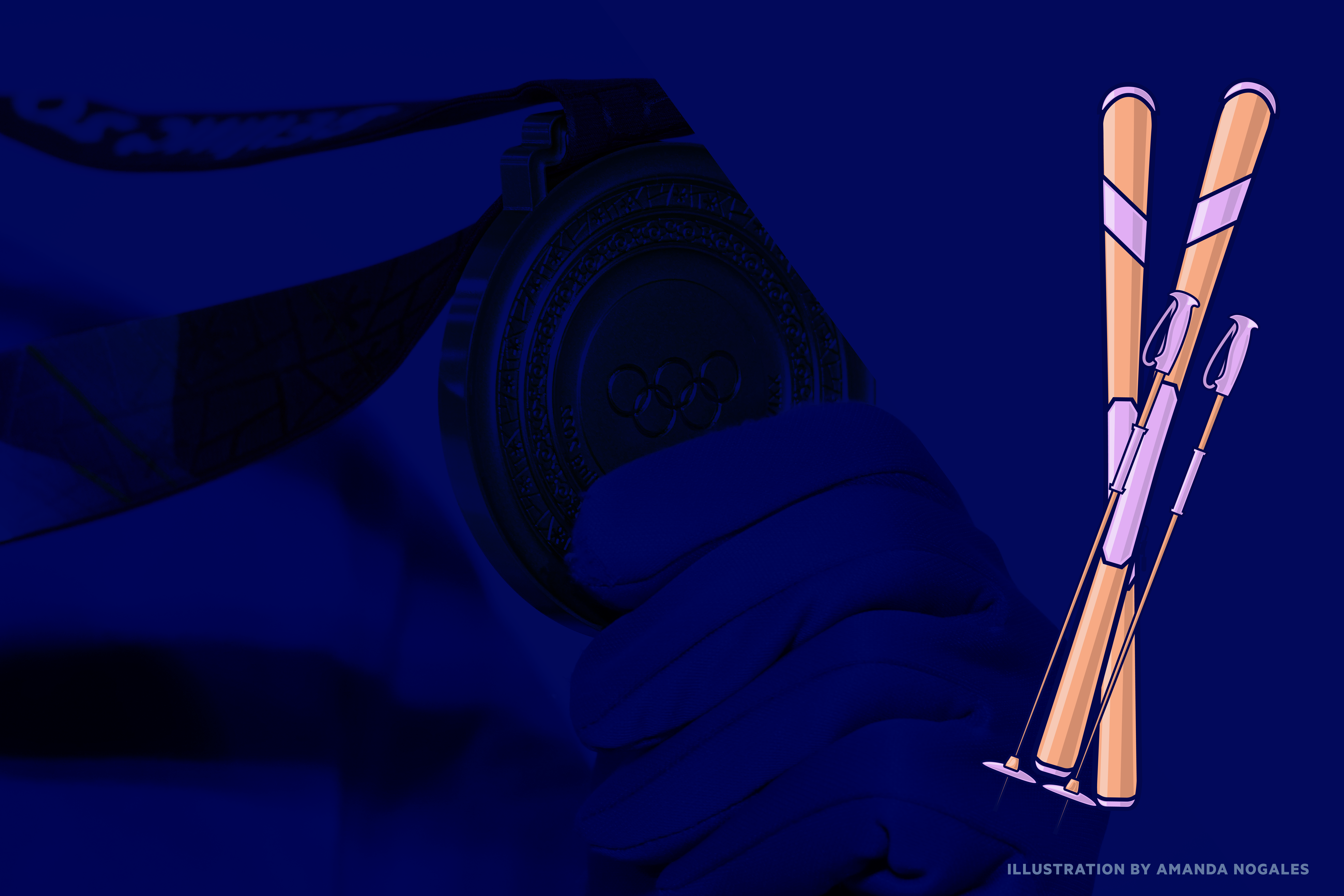
In addition to tuition, training, and medical bills, Merryweather has the everyday costs any non-athlete might have without the day job to support it. Rent, food, getting around, and training or equipment costs not covered by her sponsors add another $20,000 per year to her spending. These generally come out of her own pocket, funded by cash endorsements or prize money. Merryweather says some of these costs can be covered by something called a headgear sponsor.
“This denotes the company or brand that you’ll see across the front of some athletes’ helmets, right above the goggles,” she explains. “These are usually the primary sponsors of each athlete, and they’re typically cash-based rather than gear-based. These can be quite lucrative for high-ranking athletes, but for most, they provide a few thousand dollars toward subsistence and training costs. These are sought out by athletes themselves and aren’t usually associated with the US Team in any way.”
Although once banned by the Olympics, these contracts are now very common and can make a big difference for athletes in successful years. Meanwhile, years blighted by injury and bad luck can be financially difficult.
And then there’s housing—even athletes who make it to the Center of Excellence do not receive room and board. “The Utah Olympic Park recently put in a housing unit for athletes, coaches, and Utah Olympic Park staff, but it’s not free,” Merryweather explains. She went on to say that the high cost of housing in Park City leads many athletes to travel long distances each training day. “Most rents in Park City are well over $1,000 per month, even for studio apartments, so housing is easily US ski teamers’ highest expense. Some athletes, myself included, find cheaper rents down in Salt Lake City and commute to and from Park City for training.”
Merryweather is fortunate enough to have the support of the US Ski Team and estimates that her costs would easily top $100,000 without that support.
If the costs of becoming an Olympic skier seem prohibitive, there are a few hacks that can make it more accessible. I grew up in the UK where, like in much of the world, Olympic training and competition are supported by government funds and a national lottery. This is not the case in the US, where national governing bodies like US Ski and Snowboard must raise their own funds from sponsorship and membership fees.
During the Winter Olympics, it is not uncommon for athletes to also be members of their nation’s militaries. The British Army offers scholarships, support, and greater leniency with scheduling for world-class athletes. The US army has a similar program—it sent nine athletes to Beijing. As part of the US program, athletes are able to train full-time with military and civilian coaches while also keeping up with their job requirements and serving in publicity and recruiting roles. These programs offer support for athletes who are just below the Olympic level and absorb some of the costs of living and training that come with preparing for trials.
Of course, many Olympic sports, like biathlon and modern pentathlon, were designed to test the abilities of a soldier and so it makes sense that soldiers still compete.
If Olympians meet with success, they can expect a payout, though the amount varies by country. The USA pays a gold medal winner $37,500, while Hong Kong pays $642,000 to any athlete who makes it to the podium. For most athletes, the winnings don’t justify the cost of getting there. A study conducted in 2011 showed that 50 percent of Team USA track and field athletes who placed in the top 10 for their discipline nationally earned less than $15,000 per year. Many of them work side hustles as coaches or rely on grants to scrape by.
Wherever their support comes from, and however much they pay out of their own pockets, the Olympic games demand a huge sacrifice. Most athletes will compete in only one game, and for many, it will be the highlight of their career. They will battle through injury and miss important events in the lives of their friends and families in order to make it to the opening ceremony. But for the ones who make it to the podium, that moment is priceless.![]()
Source link
